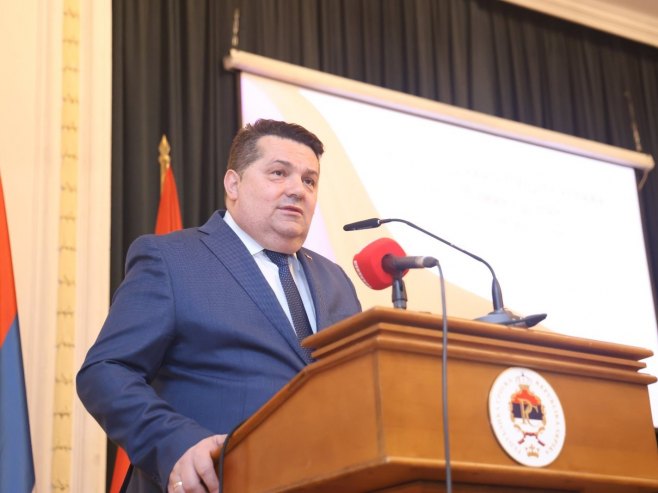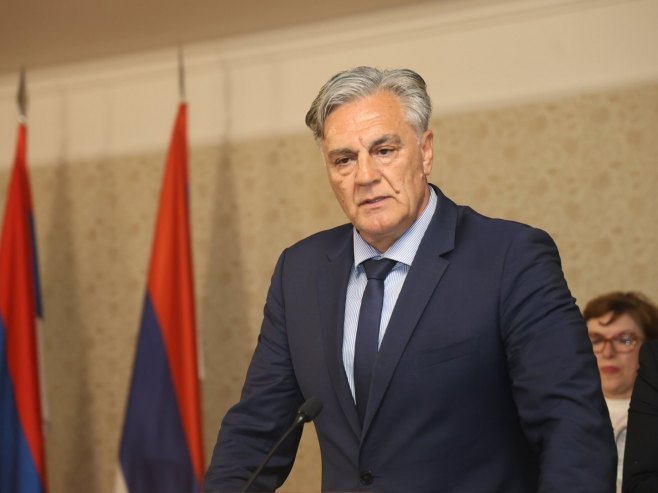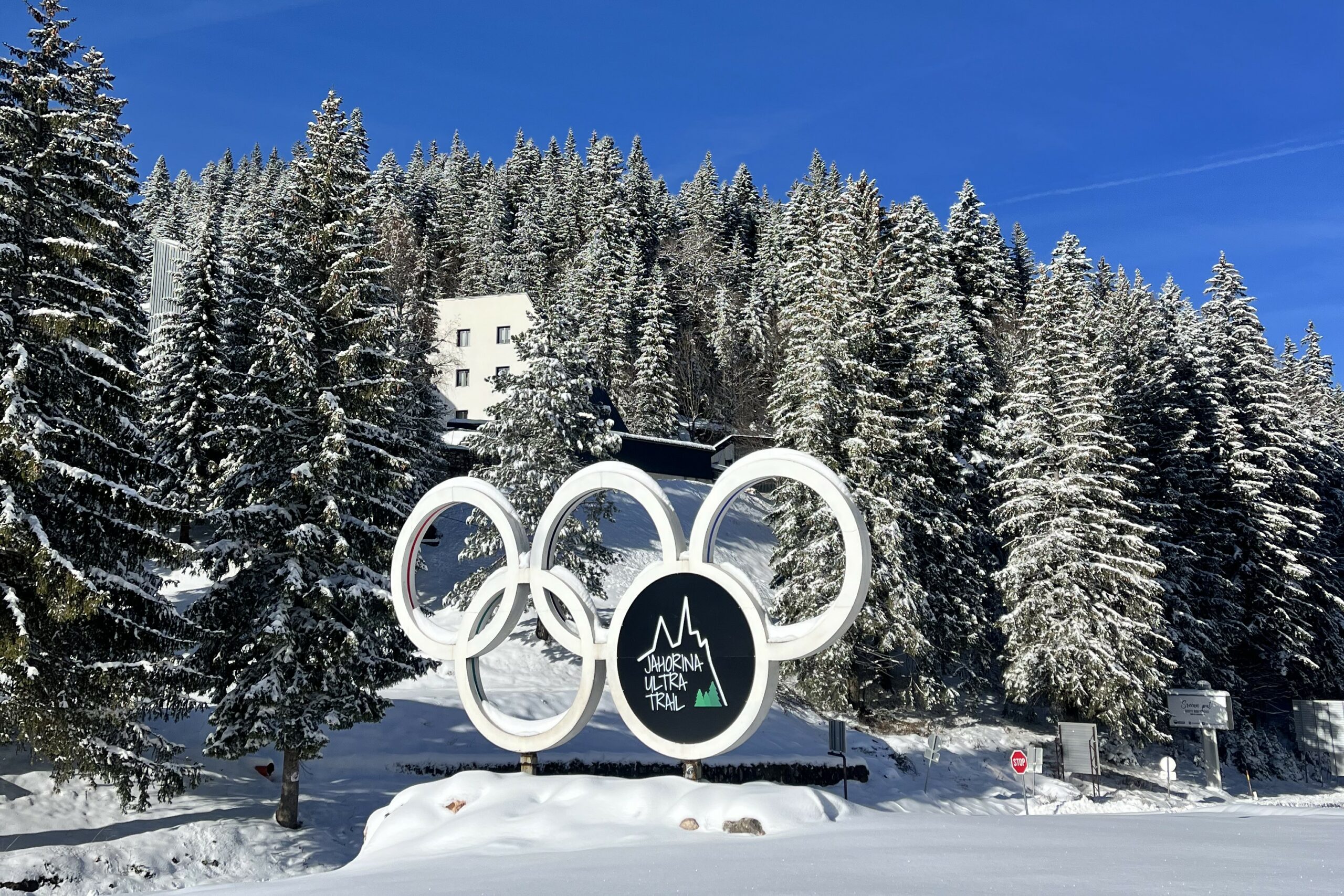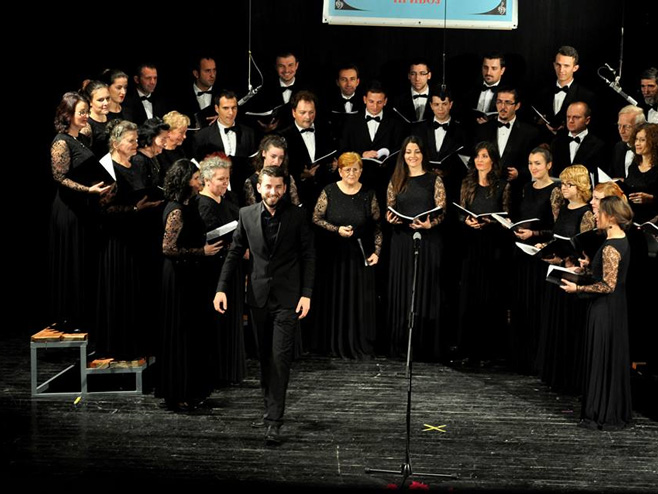“Slavko Mitrović, a legal expert, emphasized in a column for Nezavisne novine that the trial conducted by the so-called prosecution and court of BiH against the President of Republika Srpska, Milorad Dodik, and the Director of the Official Gazette of Republika Srpska, Miloš Lukić, for a nonexistent criminal act of protecting the character and work of Christian Schmidt, is a continuation of the irreversible disintegration of anti-Dayton Bosnia and Herzegovina.”
The “Sarajevo Twilight Zone” column is broadcast in its entirety:
The process led by the so-called prosecution and the court of Bosnia and Herzegovina against the President of Republika Srpska, Milorad Dodik, and the director of the “Official Gazette of Republika Srpska,” Miloš Lukić, for a non-existent criminal act of protecting the image and actions of Kristijan Šmit, is a continuation of the irreversible breakdown of the anti-Dayton Bosnia and Herzegovina. All of this resembles a continuation of what has historically been known as “the judge accuses you, the judge tries you.” So, judge/prosecutor Nedim Ćosić accuses Dodik and Lukić, then passes it on to the previous procedure judge, Jasmina Ćosić Dedović.
In cases where she is the president or a council member, many are frustrated with her, considering her highly biased and impassioned, disregarding any defense proposals. It was the same in the case against Dodik and Lukić, but she previously unlawfully advised the judge/prosecutor Ćosić on how to rectify the weak indictment. What is weak cannot be fixed, yet Judge Jasmina Ćosić Dedović, carrying out her “duty,” confirmed the indictment. Then, following the usual script for these trials, Judge Mirsad Strika was appointed. He is one of the 13 judges and seven prosecutors listed in the Information of the Republic Center for Research of War and War Crimes as war personnel who accused and sentenced Serb.
This is why Dodik rightfully stated: “The President of Republika Srpska is going to this rigged trial in the court of Bosnia and Herzegovina to show how unconstitutional and illegal it is, how much it is Muslim and anti-Serb, and how much this court is a place for harassing Serb and their political persecution. The court is an unfriendly place for Serb, and it was created for that purpose.”
“The truth lies in the facts.”
According to the Constitution of Bosnia and Herzegovina, as an international treaty signed as Annex 4 of the Dayton Agreement by Republika Srpska and the Federation of BiH, there is no court or prosecution at the BiH level. As clearly stated by constitutional law professor and judge of the Constitutional Court of BiH, Zvonko Miljko, in assessing the constitutionality of the imposed law on the BiH court as a creation of the OHR and then High Representative Wolfgang Petritsch: “There cannot be a Court of Bosnia and Herzegovina if it’s not established within the Constitution of Bosnia and Herzegovina. This law couldn’t be established even by the Parliamentary Assembly of Bosnia and Herzegovina, let alone the High Representative, as courts are always a constitutional category.”
According to Annex 10 of the Dayton Agreement, the High Representative is not the “High Representative of the international community,” but rather, appointed by five signatories of that Annex 10 (Republika Srpska, Federation of BiH, the non-existent “Republic of BiH,” as well as the FRY – Serbia and Croatia) and is granted the right to exist and be named by them. If any signatory refuses the appointment of any individual as High Representative, then even the UN Security Council cannot confirm the appointment of such an individual. The National Assembly of Republika Srpska, on March 10, 2021, adopted a conclusion stating that “they consider that the previous nominations, selection, and confirmation of the High Representative were insufficiently transparent because the necessity of consultations and obtaining the consent of the parties as envisaged by Annex 10 was not respected. This represents sufficient grounds for rejecting any appointment of the High Representative without the procedure provided for in Annex 10 of the Dayton Agreement.”
The German tourist, Christian Schmidt, after sneaking into Bosnia and Herzegovina, was appointed as the “High Representative” by a group of foreign ambassadors in Sarajevo, violating Article 41 of the Vienna Convention on Diplomatic Relations (prohibition of interfering in the internal affairs of the host country). They stated: “Today in Sarajevo, the ambassadors of the member countries of the Steering Board of the Peace Implementation Council officially appointed Christian Schmidt as the next High Representative in Bosnia and Herzegovina after he was nominated for the position by Germany*.” The asterisk at the end of their statement signifies that the Ambassador of the Russian Federation did not support this, as they did not want to violate the Vienna Convention or the Dayton Agreement and its Annex 10. With their mishandling, the Sarajevo group of ambassadors humiliates BiH, granting Germany the right to nominate High Representatives. Has BiH once again been occupied by the German Reich and its fascist servants? Moreover, the UN Security Council, in a meeting on July 22, 2021, refused to endorse the appointment of Christian Schmidt as the High Representative, as he only received two votes, with the remaining thirteen members abstaining.
Therefore, Christian Schmidt is not the High Representative for two reasons: first – because Republika Srpska explicitly opposed the appointment of anyone as High Representative; second – because the UN Security Council did not confirm Christian Schmidt as the High Representative. He is a self-proclaimed High Representative and a criminal violating international law.
“Allegedly Bonn powers”
Fraud, deception, lies, crime – these are terms that could describe the spectacle of the “Bonn powers of the High Representative” allegedly obtained from the Peace Implementation Council (PIK), known as an assembled body of selected countries without a founding, statutory, or procedural act; or referred to as an “informal group of countries,” as labeled by the European Court of Human Rights, at a conference held in Bonn, December 1997. The so-called “Bonn powers” were reportedly contained in point 11.2. of the conclusions of that meeting, which reads: “We welcome the intention of the High Representative to use his ultimate powers in the region regarding the interpretation of Annex 10 of the Agreement on Civil Implementation of the Peace Agreement, in order to facilitate the resolution of difficulties by adopting binding decisions when he deems it necessary” concerning “the following issues: a) time, place, and chairing of joint institutions meetings; b) temporary measures that come into effect when the parties fail to agree and remain valid until the Presidency or the Council of Ministers makes a decision on the issue in accordance with the Peace Agreement; c) other measures to ensure the implementation of the Peace Agreement throughout Bosnia and Herzegovina and its entities, as well as the unimpeded functioning of joint institutions. Such measures may include actions against public officials or functionaries who fail to attend meetings for unjustified reasons or whom the High Representative deems to be in violation of the legal obligations established by the Peace Agreement or deadlines for their implementation.”
In the broad interpretation of these narrowly set “authorities,” even in the enumeration of issues that the High Representative himself drafted as authorities, he forgot to mention the Parliamentary Assembly as the legislator. Therefore, even the PIK couldn’t “welcome the intention” of imposing laws. Hence, all the laws imposed by the High Representative are unfounded, even according to the “Bonn powers.” When it was noticed that the “welcome intention” was missing legislative acts, the Office of the High Representative (OHR) simply added the Bonn conclusions. This is why on the official website of the High Representative, the following statement was found: “One of the most important events in the peace implementation process was the PIK meeting in Bonn in December 1997. Elaborating on Annex 10 of the Dayton Peace Agreement, the PIK requested the High Representative to dismiss public officials who violate legally assumed obligations and the Dayton Peace Agreement and, when deemed necessary, to impose key laws if the legislative bodies of Bosnia and Herzegovina do not adopt them.” It’s an obvious forgery and a criminal act of the OHR’s structure.
“Schmidt’s laws”
“So, the High Representatives couldn’t enact laws under the ‘Bonn powers.’ Even according to what the OHR added, falsifying these ‘Bonn authorities,’ they could only do so under two conditions: FIRST: if it was about key laws; SECOND: if these laws were refused by the ‘legislative bodies of Bosnia and Herzegovina.’ Not a single condition was met, not even under the falsified and appended ‘Bonn authorities.’ Then Christian Schmidt, an illegal, illegitimate, and fake High Representative, invoking Article 11.2 of the Bonn Conference conclusions, on July 1, 2023, makes three decisions that he writes should come into force immediately upon publication on the OHR’s website. One decision ‘prevents the entry into force of the Law amending the Law on the Publication of Laws and Other Regulations of Republika Srpska’; the other decision ‘prevents the entry into force of the Law on Non-Implementation of Decisions of the Constitutional Court of Bosnia and Herzegovina.’ Both these laws were adopted by the National Assembly of Republika Srpska on June 27, 2023, as the constitutional legislative body of Republika Srpska.
The third Schmidt’s mess is the ‘decision adopting amendments to the Criminal Code of Bosnia and Herzegovina,’ by which HE amends the Criminal Code of BiH with a new Article 203. a), inventing the disgraceful criminal offense of ‘non-implementation of decisions of the High Representative’ and ‘imprisonment for six months to five years.’ Along with this, there’s the ‘prohibition of performing duties, cessation of official duties and employment, revocation of decorations, prohibition of performing official duties, etc.’ Schmidt drafted this law in agreement with the opposition from Republika Srpska, as he himself stated that they (SDS, PDP, and some group) asked him to remove Dodik since they couldn’t defeat him in elections for 17 years, in ten elections held.”
The guilt lies within the ‘BiH-Herzegovina judiciary.’
“So, the date of issuance of Schmidt’s decisions and the establishment of the criminal offense of disrespecting the figure, work, and creations of the German tourist and criminal pest was July 1, 2023. According to Schmidt, from that day, these two laws passed by the National Assembly of Republika Srpska on June 27, 2023, do not exist. Consequently, anything related to these two laws annulled by Schmidt, all acts and actions taken by anyone are null and void and do not produce any effect. Christian Schmidt has tangled his mess into the distorted BiH judiciary, and the ‘Prosecutor’s Office of BiH’ on August 22, 2023, filed an indictment against Milorad Dodik and Miloš Lukić in which they wrote: ‘Milorad Dodik, as an official in the institution of Republika Srpska, in his capacity as President of Republika Srpska, using the powers prescribed by Article 80, paragraph 1, point 4 of the Constitution of Republika Srpska, issued the Decree on the proclamation’ of two laws passed by the National Assembly of Republika Srpska on June 27, 2023, ‘thereby failing to apply and implement the decision of the High Representative Christian Schmidt from July 1, 2023, which entered into force on that date, suspending the legislative process for adopting the said laws.’
What else would the President of Republika Srpska do but abide by the Constitution of Republika Srpska? The indictment sent was written in Latin script, in a language resembling Croatian and Bosnian, constituting a violation of human rights conventions.
The prosecutor clearly wrote and signed that Christian Schmidt had suspended the legislative process on July 1, 2023. This means that what Dodik and Lukić did after July 1, 2023, could not have constituted the criminal offense of ‘non-implementation of the decisions of the high representative from Article 203(a) Paragraph 1 of the Criminal Code of BiH,’ as claimed by the ‘Prosecutor’s Office of BiH,’ confirmed by the ‘Court of BiH,’ respecting Christian Schmidt. If they respected Schmidt’s decisions and his ‘suspension of the legislative process,’ how then do they sue and judge for the act of signing decrees and publishing ‘invalid’ laws in the ‘Official Gazette of Republika Srpska’ after Schmidt ‘suspended the legislative process’? There is no logic, but that is BiH.
Prosecutors and judges outside the unconstitutional BiH judiciary, unlike Dodik and Lukić, have committed a series of criminal offenses. They have violated: the principle of legality (Article 3 of the Criminal Code of BiH) and committed criminal offenses: abuse of office or authority (Article 220), unconscientious work in service (Article 224), unconscientious work in service (Article 224), violation of the law by a judge (Article 238), etc. All this despite swearing: ‘I declare that I will perform my duty in accordance with the Constitution and the law, that I will make decisions to the best of my knowledge, conscientiously, responsibly, and impartially to implement the rule of law, and that I will protect the freedoms and rights of individuals guaranteed by the Constitution of Bosnia and Herzegovina.’ The oath does not mention the high representative or foreign ambassadors who govern the ‘Prosecutor’s Office and the Court of BiH.’
In all countries worldwide, laws are passed by parliaments, as stipulated by the Constitution of BiH, which provides: ‘The Parliamentary Assembly is responsible for enacting laws necessary for the implementation of decisions of the Presidency or for exercising the authorities of the Parliamentary Assembly under this Constitution.’ The BiH Constitution does not give anyone else the right to enact laws within the jurisdiction of BiH. There is no authorization for the high representative to enact laws for Bosnia and Herzegovina!”
Sarajevo Twilight Zone is worse than Kafka’s novel
“Franz Kafka, in his novel ‘The Trial,’ described the case of Josef K. It’s a story about a man accused by a distant and inaccessible authority of a crime whose nature remains unknown to both him and the reader until the end of the novel. It’s almost as if he described the actions of prosecutors and judges in the extra-constitutional judiciary system. They haven’t even read the Constitution of BiH, where it clearly states: ‘Bosnia and Herzegovina is a democratic state that operates under the rule of law and holds free and democratic elections.’ The rule of law implies constitutionality and legality. This means that laws governing specific areas of state and social organization are enacted by parliaments based on constitutionally defined competencies. Anything contrary to that has no legal validity, is null and void, including ‘Šmit’s laws’.”
Source: Nezavisne novine








